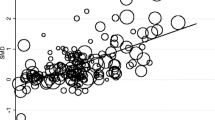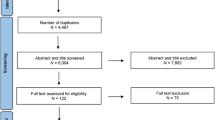Abstract.
Introduction: Pneumonia is a major cause of morbidity and mortality in older people. The poor outcome of older pneumonia patients despite treatment is still not understood. Objective: The aim of this study was to examine the effect of community-acquired pneumonia on enzymes of drug metabolism in older people. Methods: Fifteen patients (median age 67 years) with a clinical and radiological diagnosis of community-acquired pneumonia and 14 healthy volunteers matched for age and gender (median age 75 years) were recruited. Plasma activities of benzoylcholinesterase, butyrylcholinesterase, acetylcholinesterase and aspirin esterase were determined spectrophotometrically at three time points in pneumonia patients – within 24 h of admission to hospital, 2 days later and 10 days later. Monocyte aryl hydrocarbon hydroxylase (AHH) activity was determined spectrofluorimetrically at the same time points. Enzyme activities were measured at one time point in healthy controls. Results: Mean plasma benzoylcholinesterase activity was significantly lower in pneumonia patients on admission to hospital (mean±SEM 848±100) and after 10 days of treatment (mean±SEM 925±114) than in healthy controls (mean±SEM 1333±84, P<0.05). Similarly, plasma acetylcholinesterase activity was significantly lower in pneumonia patients on admission (P=0.007) and after 10 days of treatment (P=0.01) than in controls. Butyrylcholinesterase activity was lower in pneumonia patients on admission (P=0.029) than in healthy controls, but improved slightly after treatment so there was no longer a significant difference at 10 days compared with controls (P=0.077). In contrast there were no significant differences in plasma aspirin esterase activity or induced monocyte AHH activity between pneumonia patients and healthy controls. The activities of benzoylcholinesterase (r=–0.536, P=0.04), butyrylcholinesterase (r=–0.638, P=0.01), acetylcholinesterase (r=–0.583, P=0.022) and aspirin esterase (r=–0.624, P=0.013) correlated inversely with the British Thoracic Society pneumonia poor prognostic index. Conclusion: The activities of several esterases are reduced in older pneumonia patients. Other enzymes including aspirin esterase and induced monocyte AHH activity are unaltered in pneumonia. There was a significant inverse relationship between the activities of all esterases studied and the British Thoracic Society pneumonia poor prognostic index.
Similar content being viewed by others
Author information
Authors and Affiliations
Additional information
Accepted in revised form: 28 November 2000
Electronic Publication
Rights and permissions
About this article
Cite this article
Abou-Hatab, K., Ganeshalingam, K., O'Mahony, M. et al. The effect of community-acquired pneumonia on plasma esterases in older people. Eur J Clin Pharmacol 57, 55–60 (2001). https://doi.org/10.1007/s002280000259
Received:
Published:
Issue Date:
DOI: https://doi.org/10.1007/s002280000259




